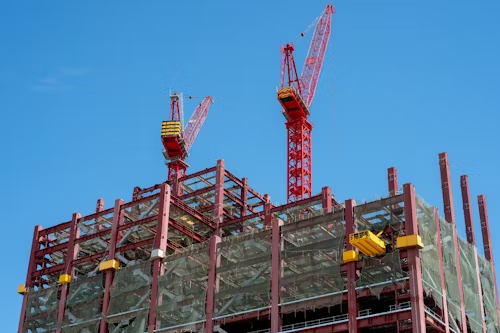
A new funding initiative at Virginia Tech is giving researchers fresh momentum to address some of the toughest challenges facing the construction industry.

The Coalition for Smart Construction, housed at Virginia Tech, has awarded its first set of seed grants to faculty teams pursuing innovative, practical solutions to industry-wide problems. The program is designed to spark early-stage research and position projects for larger federal and industry-backed funding in the years ahead.
The seed funding program is supported by the Institute for Critical Technology and Applied Science, the Hitt Family Foundation, and the Office of Strategic Research Alliances. In total, five projects received $280,000, with individual awards ranging between $30,000 and $75,000.
“This opportunity is about researchers and industry members working together to take the construction industry to the next level,” said Brett Hitt, co-chairman of HITT Contracting. “With faculty and industry input, we were able to identify specific growth areas where we want to see progress. Our hope is that this funding will jump-start projects that address concerns in these areas, leading us into the future of construction.”
The initiative focuses on five priority growth areas: advanced materials and manufacturing, construction operations, energy, sustainability, and digital/human interfaces.

“Seed money like this is especially valuable because it allows us to pursue ideas of tremendous potential and lay the groundwork for much larger proposals for support down the road,” said Jon Porter, Virginia Tech Associate Vice President for Strategic Resources. “We take pride in our faculty’s eagerness to collaborate with both industry and each other to apply their skills to critical questions in construction. And we are particularly grateful to the Hitt Family Foundation for its generous financial support for these projects.”
The seed grants are the latest step in a growing collaboration between Virginia Tech and HITT Contracting. The coalition was first conceived in 2023 as part of a broader effort to connect university expertise with private-sector needs.
Looking ahead, the Coalition for Smart Construction will expand its physical presence in Falls Church, Virginia, where a 40,000-square-foot headquarters is being developed by HITT Contracting. Groundbreaking took place in February 2025, and the facility is expected to open in 2027.
Once operational, the headquarters will serve as a hub for innovation, housing research, prototyping, and collaboration between academia, government, and industry.
By pairing academic expertise with industry-driven needs, Virginia Tech hopes these early investments will pave the way for smarter, more sustainable, and more efficient construction methods nationwide.
Originally reported by Lexi Clatterbuck and Albert Raboteau in Virginia Tech News.